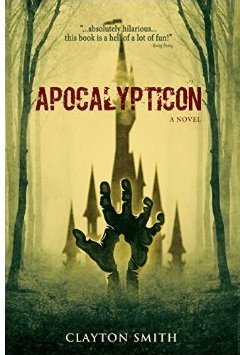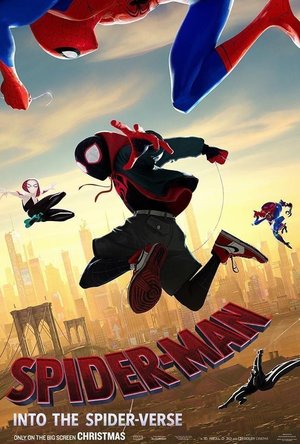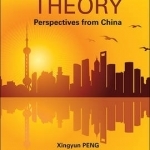
Financial Theory: Perspectives from China
Book
China is now the second largest economy in the world, with an increasingly efficient and open...
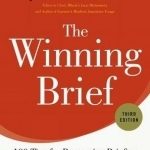
The Winning Brief: 100 Tips for Persuasive Briefing in Trial and Appellate Courts
Book
It its first two editions The Winning Brief explained the art of effective writing in 100 concise,...

Fighting Fantasy: The Forest of Doom
Games and Book
App
Nostalgia overload! Fighting Fantasy returns with Ian Livingstone's classic, The Forest of Doom. ...
b.Young (97 KP) rated Apocalypticon in Books
Jun 1, 2018
Apocalypticon is a story of two friends in Chicago that somehow survived M-Day, the day the monkey shaped missiles were launched from Jamaica to destroy most of the inhabitants of Earth, only to pack up 3 years later and make a whirlwind trip to visit Disney World, of all places.
Along the way, Patrick and Ben come across some very colorful survivors like Violet, a woman who runs the only bridge out of town like a restaurant: hostess stand, bus boys, wine and all; an Amtrak Captain who happens to be the only one left in the country, that is obsessed with keeping a schedule he never can seem to keep; a futune teller that warns Patrick of his fate; a couple of religious cults, each morbidly twisted in their own way; zombie-like creatures called Runners that snorted their way into the realm of the semi-undead; a gun-toting chick that thinks that the Runners can be cured; and journalist who is trying to make sense of why certain people survived the decimation of 98% of the world's population.
Now, don't get me wrong, there were plenty of action scenes where people and things got effed up, but not so much of the blood and gore that typically goes along with genre.
I surprised myself by actually laughing out loud while reading this...several times, I might add.
I recommend Apocalypticon to anyone who enjoys a good apocalypse story and can accept the hilarity of the situation at hand.

2016 Stocks, Bonds, Bills, and Inflation (SBBI) Yearbook
Roger Ibbotson, Roger J. Grabowski, James P. Harrington and Carla Nunes
Book
The latest, most complete data for more informed investment decisions The 2016 Stocks, Bonds, Bills,...
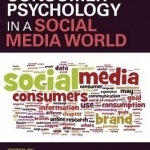
Consumer Psychology in a Social Media World
Claudiu V. Dimofte, Curtis P. Haugtvedt and Richard F. Yalch
Book
Consumer Psychology in a Social Media World seeks to illustrate the relevance of consumer psychology...
TravelersWife4Life (31 KP) rated Essential Oils: God’s Extravagant Provision for Your Health in Books
Feb 24, 2021
The first thing I noticed, was Teri Secrest’s love for her family. It is readily apparent throughout the whole book. She shares many examples of times that her family has used essential oils in their intended purpose with great success, even in the face of great odds. Personally, it was cool to read about the different healing properties that essential oils provide. It encouraged me to try new things, and research more about essential oils to know if the ones I am currently using are actually “pure” or if they are artificial scents.
Second, Teri Secrest has taken the time to research everything about essential oils, from the process of making the oils, preserving the oils, and the Biblical implications of the different oils. She has pursued the knowledge of essential oils for most of her life, she has sought that knowledge from others who have made it their lives work to keep essential oils alive for generations to come. Teri has also extensively traveled to places where essential oils are grown and preserved. Her love of that essential oils readily shows in her portrayal of the importance of essentials in our daily lives; based on the biblical use of essential oils.
Third, I loved how this book read as more of a story. Teri Secrest walked me through the Bible (highlights, stories, and Biblical references) of different times where essential oils were used and the purposes in using them. I think my favorite was the story of King Solomon. However, there are over 500 different references to essential oils in the Bible! I had no idea that essential oils were so extensively mentioned in the Bible. Interwoven throughout these Biblical stories is Teri Secrest’s personal journey with learning to use different essential oils.
Overall, I was wonderfully surprised by this well laid out storyline that read like a novel (almost), with colorful pictures, descriptions, and the recipes for different essential oil uses. I truly think that this was a great book to grow my understanding of essential oils and how they relate to the Bible and our overall health. I am looking forward to trying some of the ideas that Teri Secrest mentioned.
I give this book 5 out of 5 stars for the creative storytelling Teri Secrest used to weave in multiple facts, Biblical wisdom, and personal stories to create an informative and enjoyable book. As well as the assembly of Biblical facts explained in an easy to understand way and the vivid descriptions of the different oils used in the Bible. I truly cannot recommend a book more.
*As a side note I usually include a disclaimer saying I was given this book in exchange for my honest review, which I was. However, I have also purchased a copy for myself and two additional copies as Christmas gifts, as I believe people will really enjoy and learn from this book.
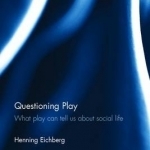
Questioning Play: What Play Can Tell Us About Social Life
Book
What is play? Why do we play? What can play teach us about our life as social beings? In this...
The Reparative Effects of Human Rights Trials: Lessons from Argentina
Book
Justice in domestic courts is one of the most prominent aims of victims seeking to obtain...
BankofMarquis (1832 KP) rated Spider-Man: Into the Spider-Verse (2018) in Movies
Dec 28, 2018
"But wait", you say, "How about the Marvel films? Or the DC Universe films? Or the X-Men or DeadPool? Aren't they Comic-Book films?".
I would have to answer - "no". At least not in the same way. All of those properties are films that are BASED on comic-books. Spider-verse, brilliantly, is a comic-book brought to life. It includes scenes that look like pages of a comic book (or graphic novel). It uses thought bubbles,sound effect words and abstract images. The characters are distorted and when other versions of the Spider-Verse are scene (not a spoiler: it's in the title), they are designed in a different graphic style.
Credit for this unique vision/type of film must start with the writers, Phil Lord (The Lego Movie) and Rodney Rothman (22 Jump Street) as well as Directors Bob Persischetti (in his Directing debut) and Rothman (again). These 3 brought to the screen a dazzling visual storytelling vision that is engrossing and interesting and (I am sure) will become richer and richer the more that this film is viewed.
This vision must have been apparent from the "get-go" as these 3 were able to load some top-notch voice talent into this film - Mahershala Ali, Hailee Steinfeld, Jake Johnson, Lily Tomlin(!), Zoe Kravitz, John Mulaney, Kathryn Hahn, Liev Schrieber, Chris Pine and good ol' Nicholas Cage all bring their "A" game to the voices, presenting (instantly) interesting, distinct characters to this interesting, distinct world.
The action of this film moves at a fast-pace, but not so fast that you get lost and the emotions of the film are strong, so the "slow" scenes are just as well paced and don't seem too slow.
I see alot of films, and it is rare when I am struck with how "unusual" a film is. And this one IS unusual - in a very good way. I was thoroughly entertained throughout and I cannot wait to see this film again to catch some of the things I missed the first time through and have a deeper and richer experience for knowing what is to come.
Letter Grade: A
9 (out of 10) stars (yes, it's that good!) and you can take this to the Bank(ofMarquis)
